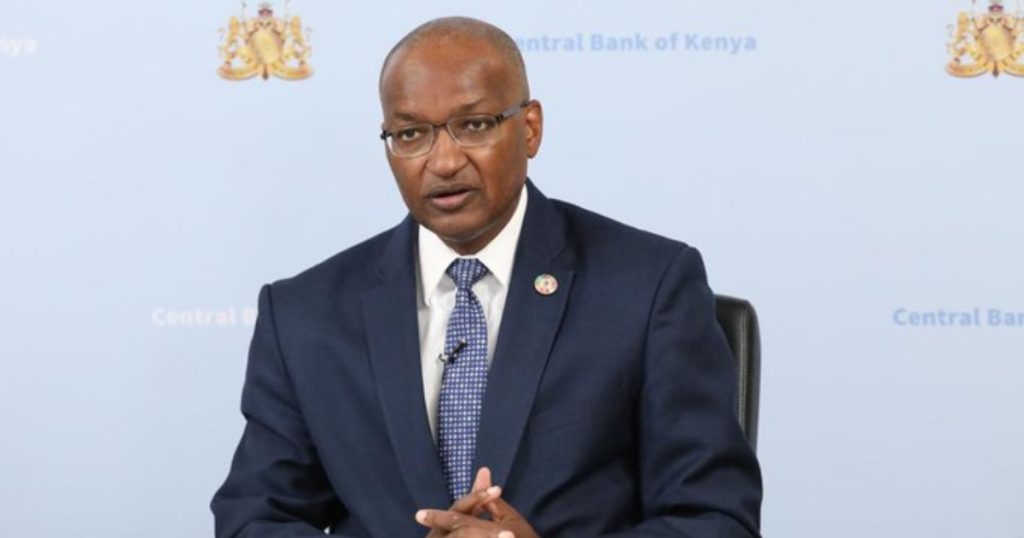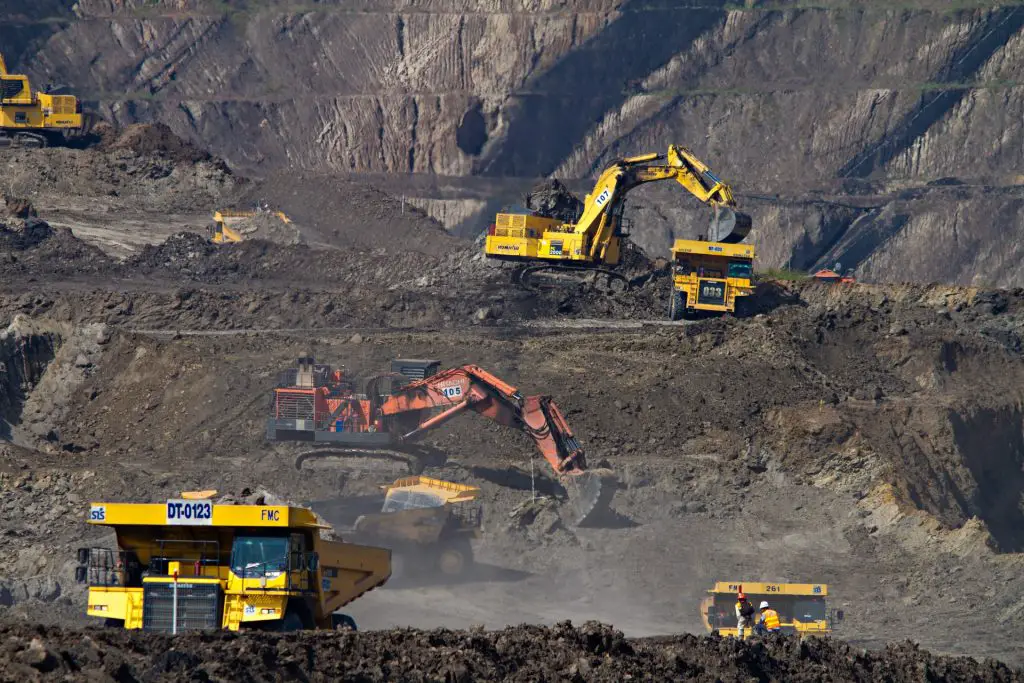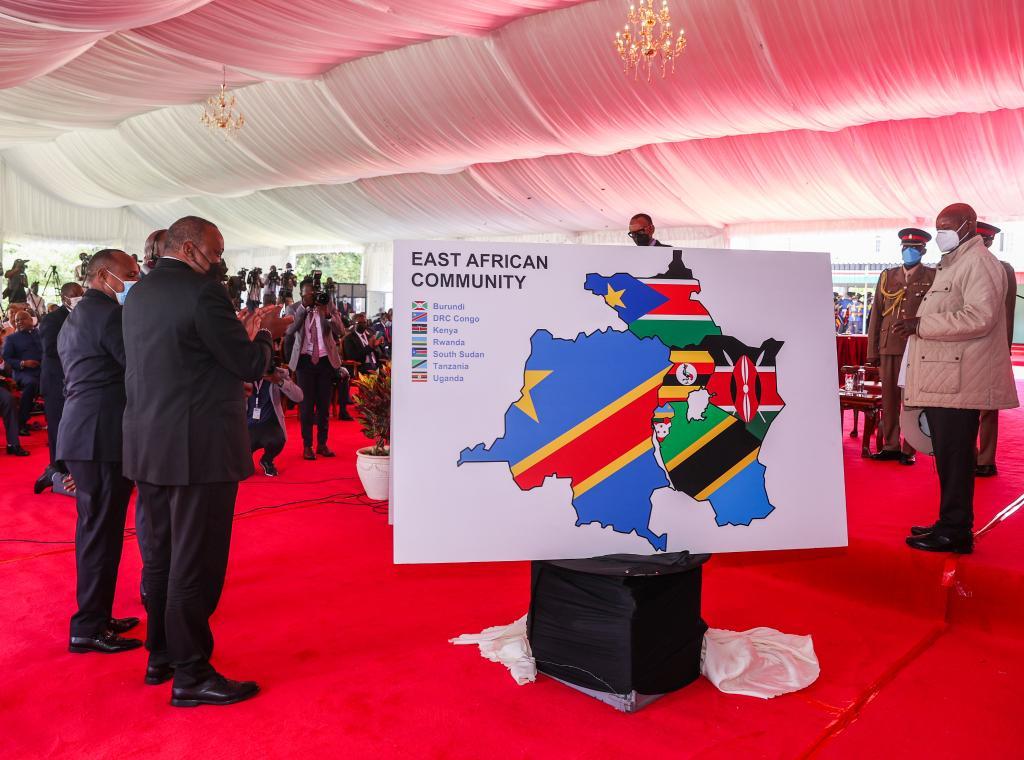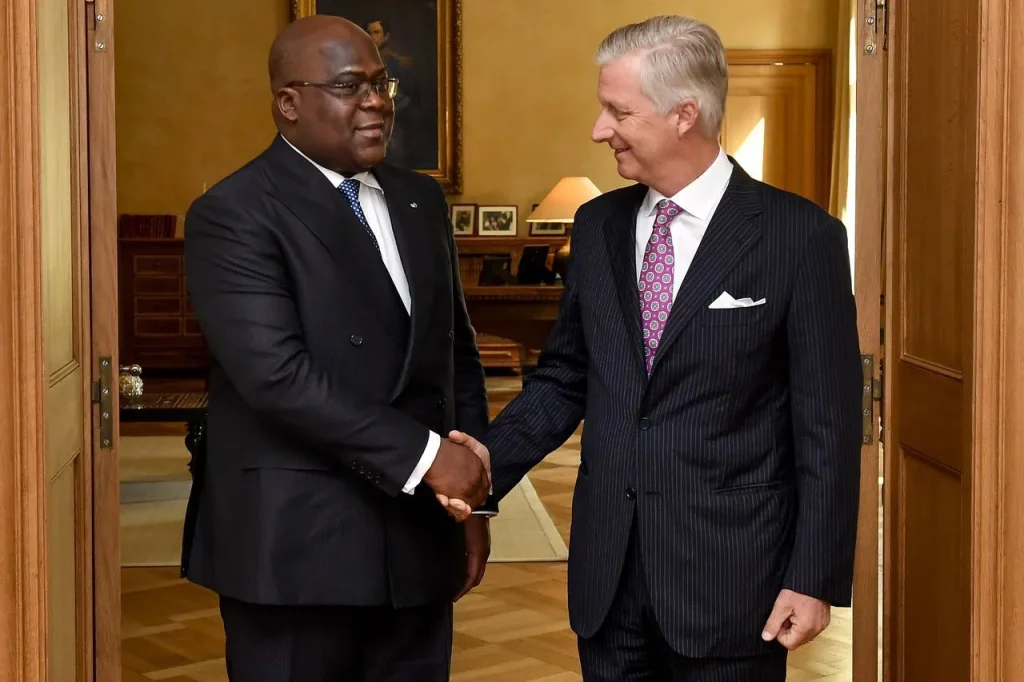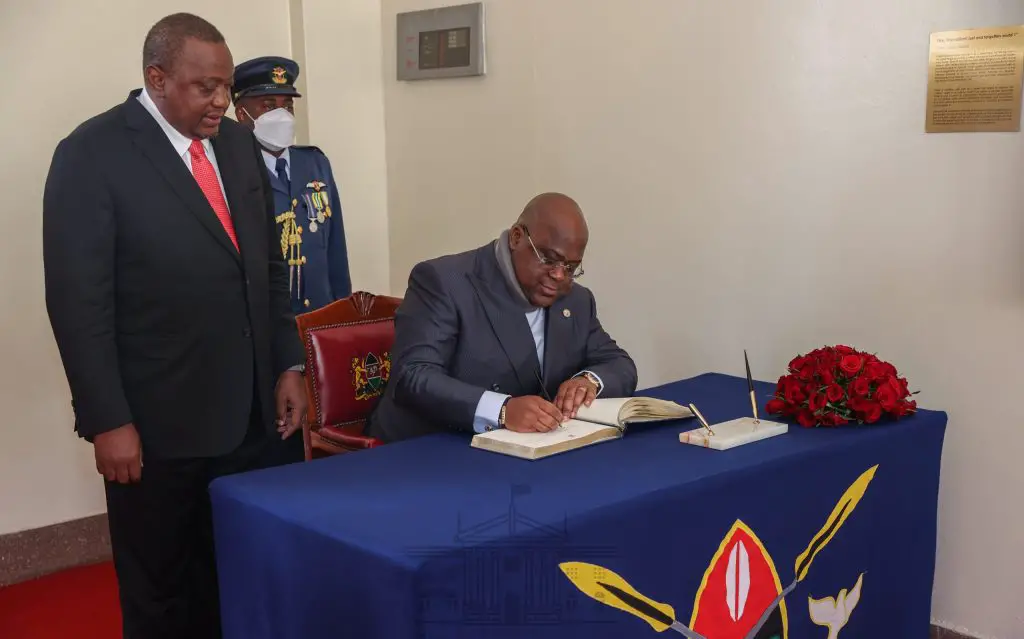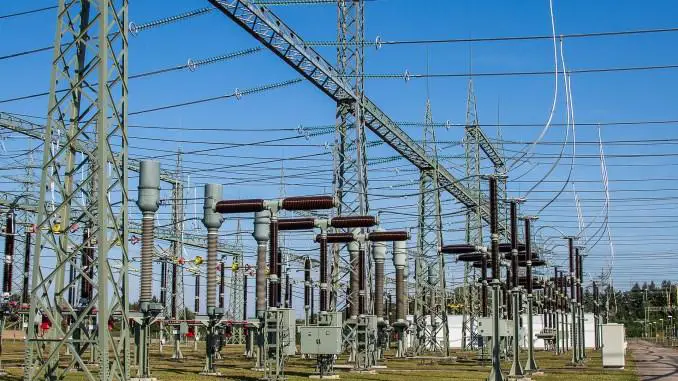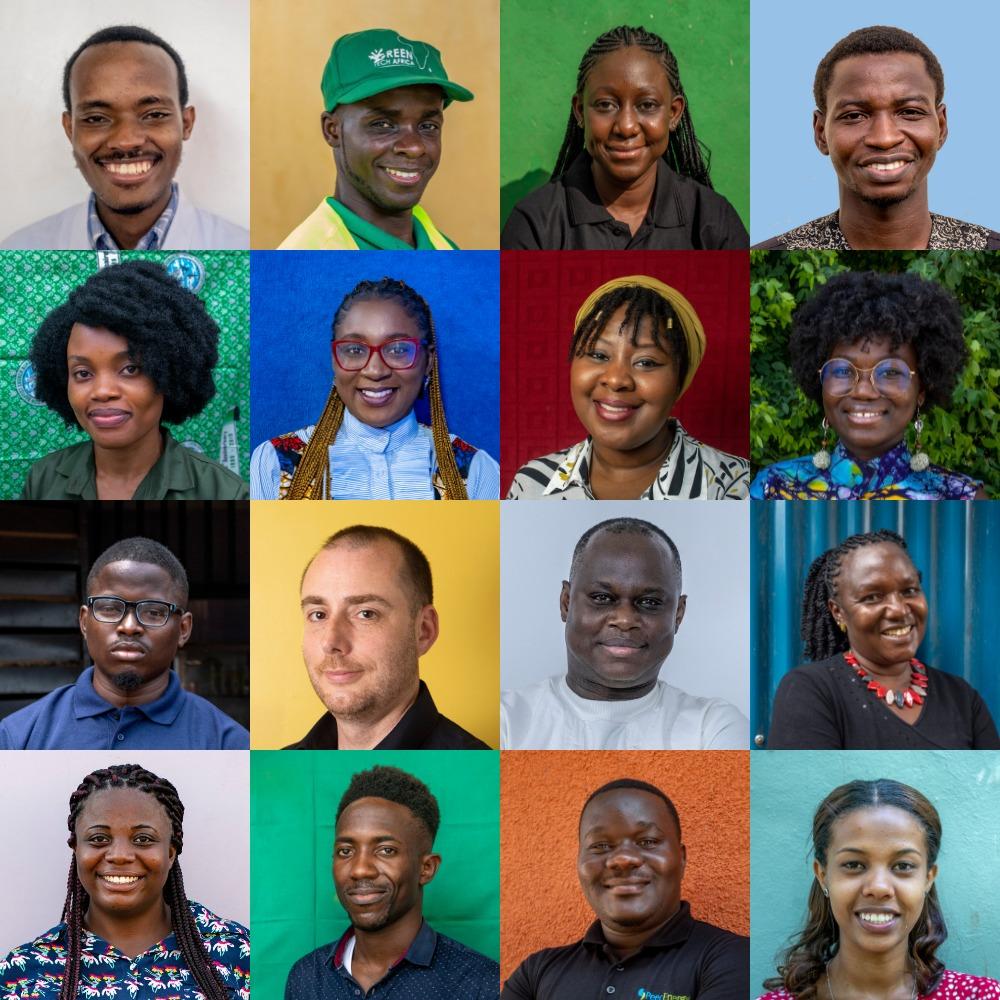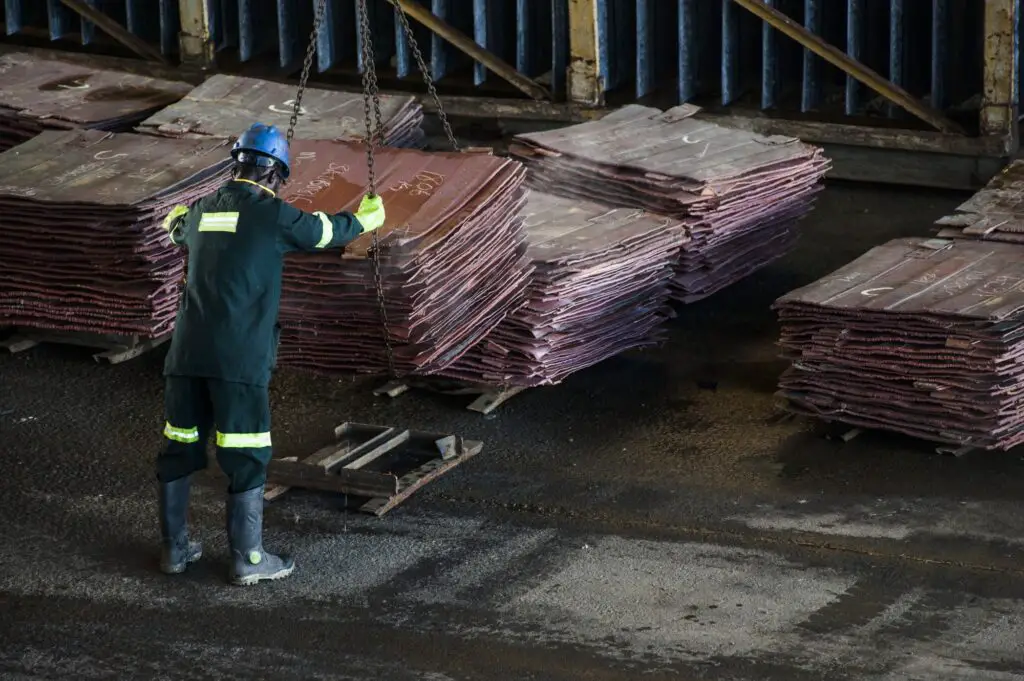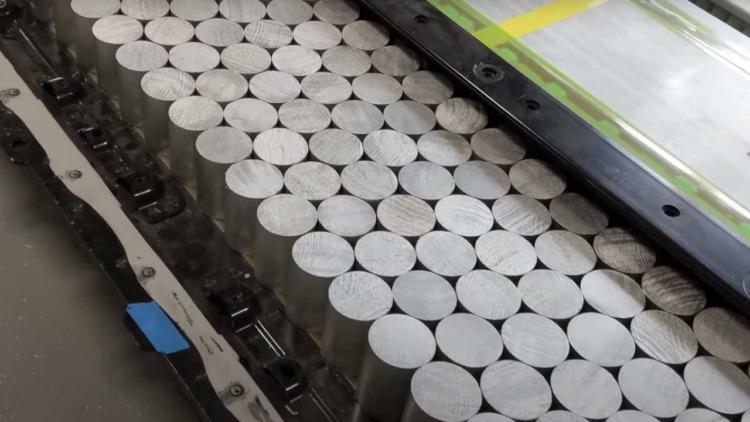- Africa’s new dawn: the rising role of digital and AI in agriculture
- Can Dangote Refinery Transform Africa Energy Ambition
- Gallup Survey: 80 per cent of Kenyan Workers Are Disengaged and Seek New Opportunities
- Madagascar Man Freed from 5KG Tumor After 15-Year Struggle
- How women in Africa are perceived and treated
- Sugar consumption in Kenya to Increase to 1.23 Million Tonnes
- Can Somalia and Turkey Oil deal Bring Change in Somaliland
- Remittances to Kenya dropped to $371.6 million in June, marking a six month low
Browsing: DRC
- The Central Bank of Kenya (CBK) has welcomed the admission of the Democratic Republic of Congo (DRC) into the East African Community (EAC)
- CBK noted that DRC’s admission to the EAC also means it joins the institutions of the community, including the EAC’s Monetary Affairs Committee (MAC)
- It also effectively expands the region’s market size and offers a path between the seas for trade and cultural integration and new investment and employment opportunities for a dynamic population of about 300 million
The Central Bank of Kenya (CBK) has welcomed the admission of the Democratic Republic of Congo (DRC) into the East African Community (EAC).
In a statement seen by The Exchange Africa, CBK said noted that DRC’s admission to the EAC also means it joins the institutions of the community, including the EAC’s Monetary Affairs Committee (MAC).
The occasion was marked by depositing the instrument of ratification with the Secretary-General …
The DRC investment summit is a creative tool used by the nation to attract global investment stakeholders. According to the summit organizers, the summit brings together international investors, businesses, developers, and policymakers to attract and retain investment, as well as discuss trends that influence economic growth in the DRC.
DRC is arguably one of Africa’s richest countries in terms of natural resources, but it still ranks lower in investment performance.
Furthermore, DRC’s Human Capital index is 0.3 percent below the SSA average of 4 percent.
DRC has the world’s third-largest human population of impoverished people, which the WB argued remains widespread and is increasing due to the impacts of the COVID-19 pandemic.…
- Democratic Republic of Congo will host a major investment summit 27-29 June in Kinshasa
- Favourable policy changes to be discussed by top government officials
- President Felix Tshisekedi government reassures investors of security measures
Only three months after joining the East Africa Community (EAC) the Democratic Republic of Congo will this June host its inaugural DRC Investment Summit that will open the doors to Central Africa’s investment opportunities like never before.
Scheduled to take place from 27 – 29 June 2022, the two day summit will feature expert sessions that will highlight investment opportunities in the country. These sessions will provide a one of a kind platform allowing investors to learn of and hold in-depth analysis linked to policy making as well as global supply and demand movements
Organised by the government of the DRC, this inaugural summit is a global meeting place for investment in the Democratic Republic of …
- In 2020, the DRC imported goods of over US$333 million from Belgium, with products such as blood, vaccines, refined petroleum and packaged medicaments topping the imports
- Including the DRC in the EAC provides Belgium with almost all the imports they source from Africa from one region, the East African region
- The atrocities committed by King Leopold II are dragging the relationship between these two countries
The war between Russia and Ukraine is shifting the focus of European countries to Africa as an alternative market for gas and food products. Among the relationships that have registered an upward trend is a partnership between the Democratic Republic of Congo and Belgium.
The trade relationship between the two countries has been in existence for decades now, performing well economically. In 2020, the Democratic Republic of Congo (DRC) imported goods of over US$333 million from Belgium, with products such as blood, vaccines, refined petroleum …
“Concerning the management of the mineral resources sector, the Partner States agree, among other things, to promote joint exploration, efficient exploitation and sustainable utilization of shared mineral resources,” the treaty reads in part. The World Bank notes that DRC’s natural resources are diverse and immense in its country report. The country has the world’s second-largest primary humid tropical rainforest endowment and carbon sink globally.
“However, forest loss rates have accelerated in recent years, and in 2020, the DRC lost 1.31 million ha of natural forest, equivalent to 854 million tonnes of CO₂ of emissions. This has had deleterious environmental impacts (including rainfall patterns, biodiversity, and climate change) and is threatening the livelihoods of the 35 million people who depend on forest resources,” World Bank says in the report.
World Bank’s collaborations in energy sector investments have been intended to rehabilitate transmission networks and hydropower plants, raise Inga’s electricity production by …
- The United Arab Emirates (UAE) has announced interest in investing in the Democratic Republic of Congo (DRC)’s solar energy sector
- The MoU was signed between DRC’s state electricity company Société Nationale d’Électricité (SNEL) and AMEA Power
- World Bank data indicates that DRC has a population of 84 million people, but only 19 to 20 per cent of the population have access to electricity
The United Arabs Emirates (UAE) has announced interest in investing in the Democratic Republic of Congo (DRC)’s solar energy sector.
The countries, through two companies, entered into a Memorandum of Understanding (MoU) to pave way for the production of 30 megawatts in DRC.
The MoU was signed between DRC’s state electricity company Société Nationale d’Électricité (SNEL) and AMEA Power.
SNEL Director-General Jean-Bosco Kayombo Kayan said the deal would see millions of people get connected to the national power grid.
According to the DG, UAE plans on exploring …
The programme will facilitate access to the Royal Academy’s global network of experienced, high-profile and business experts, in addition to access to the alumni network upon completion of the programme.
Moreover, 2022 is the programme’s second consecutive year to render a digital experience, with rigorous support provided through person-to-person and group discussions.
Four finalists will pitch their revised and improved innovations and business plans to the judges in the presence of a live audience.…
A dollar is trading at 16.67 Kwacha and 13.35 Seychelles rupees as at December 31. Both countries were among the three worst performers in 2020.
This has fueled speculation from corporate participants and currency retail traders on when exactly to exit foreign currency risks for dollar hoarders or whether to buy the Kwacha as a safer haven store for value.
President Hichilema’s government is in the process of reworking as much as $17 billion in external public debt. He has submitted an endorsement request to the IMF as his administration advances talks with creditors from US$3 billion in Eurobond holders to US$5.8 billion owed to the Republic of China. …
The trade mission, which brings together Kenyan and DRC investors and entrepreneurs, will be held in four of DRC’s biggest cities that is, Kinshasa, Lubumbashi, Goma, and Mbuji Mayi.
SMEs will have an opportunity to explore opportunities in DRC through business forums and panel discussions moderated by experts in various fields, site visits to various businesses and locations of interest, networking sessions, and trade exhibitions that will allow businesses to showcase their products and services.
Speaking during the official opening ceremony, Bazaiba expressed delight in seeing two sovereign States from the East and Central Africa region championing the growth and integration of Africa through trade and investment.…
Precursor material produced in the Democratic Republic of Congo (DRC) could be cost-competitive with material produced in China and Poland but with a lower environmental imprint.
If cathode precursor materials (the intermediate material between raw and finished cathode material) were produced in the DRC, Poland would handle the production of cathode materials and cells, and Germany would handle the final pack assembly, emissions associated with battery production could be reduced by 30% compared to the current supply chain that runs through China.
The DRC’s proximity to cathode raw materials and its reliance on hydroelectric power plants give it an edge in this production.…





